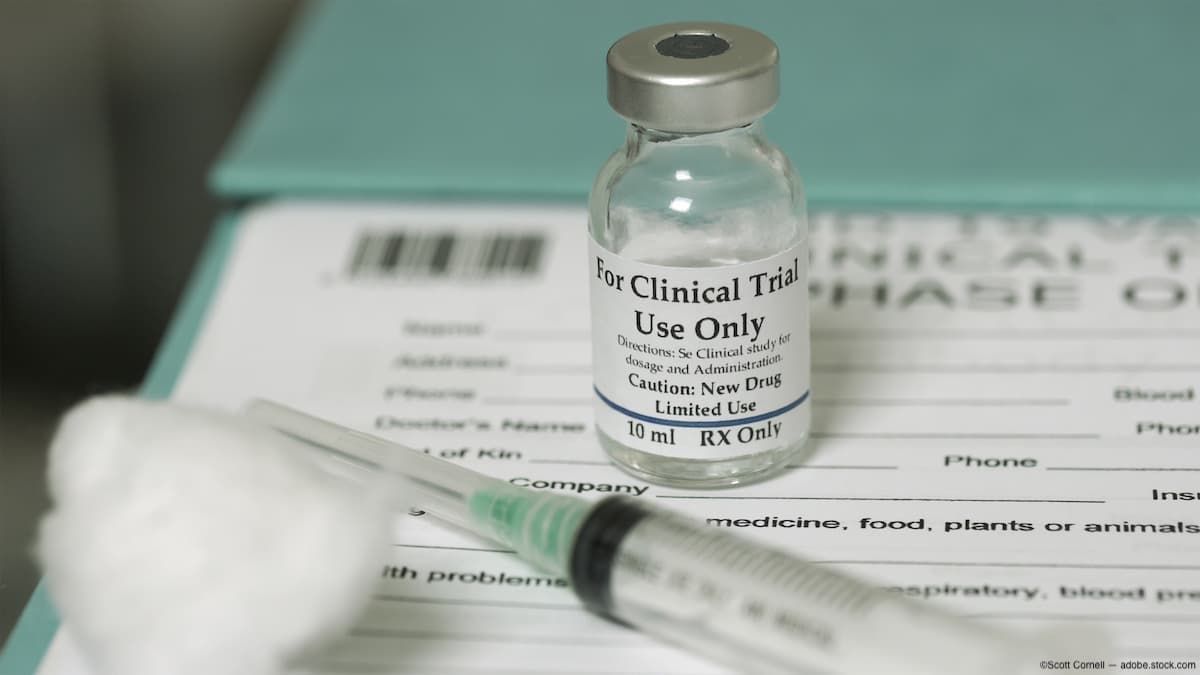Data and Safety Monitoring Board for Ocugen’s Phase 1/2 ArMaDa clinical approves medium dose of OCU410
The Phase 1/2 study includes a dose-escalation phase of the study featuring 3 cohorts each one receiving either a low, medium, or high dose of OCU410.
Image Credit: AdobeStock/ScottCornell

The Data and Safety Monitoring Board (DSMB) for the Phase 1/2 ArMaDa clinical trial for OCU410 by Ocugen, Inc recently convened and approved to proceed dosing with the medium dose of OCU410 in the dose-escalation phase of the study.1
In the Phase 1/2, 3 patients with geographic atrophy (GA) have been dosed to date. An additional 3 patients will be dosed with the medium dose (Cohort 2) and 3 patients with the high dose (Cohort 3) of OCU410 in the dose-escalation phase.1
According to the company, OCU410 uses an AAV delivery platform for the retinal delivery of the RORA gene. This gene plays an important role in lipid metabolism, reducing lipofuscin deposits and oxidative stress, demonstrates an anti-inflammatory role, and inhibits the complement system in in-vitro and in-vivo (animal model) studies. These different roles may allow OCU410 to target multiple pathways linked with dAMD pathophysiology. Ocugen is developing AAV-RORA as a one-time gene therapy for the treatment of GA.1
Peter Chang, MD, FACS, is the DSMB Chair for the OCU410 clinical trial. In the press release1, he shared that the medium dose will be a key step in the trial process of OCU410, saying, “The DSMB has recommended moving forward to medium dose for dosing subjects with GA. No serious adverse events (SAEs) related to OCU410 have been reported to date. I believe that this marks a critical next step towards determining the optimal dosing regimen and an important milestone for the clinical development of OCU410.”
Huma Qamar, MD, MPH, Chief Medical Officer of Ocugen, noted that the company sees promise in this one-time treatment for GA, saying, “The positive DSMB review for the first modifier gene therapy for GA significantly builds on the favorable safety and tolerability profile exhibited by OCU410. We are very enthusiastic about the potential of OCU410 as a one-time treatment for life with a single sub-retinal injection.”1
The ArMaDa clinical trial is designed to assess the safety of unilateral subretinal administration of OCU410 in patients with GA and will be conducted in 2 phases. Phase 1 is a multicenter, open-label, dose-ranging study consisting of three dose levels [low dose (2.5×1010 vg/mL), medium dose (5×1010 vg/mL), and high dose (1.5 ×1011 vg/mL)]. Phase 2 is a randomized, outcome accessor-blinded, dose-expansion study in which subjects will be randomized in a 1:1:1 ratio to either one of two OCU410 treatment groups or to an untreated control group.1
Reference:
Ocugen Announces Positive Data and Safety Monitoring Board Review and Initiation of Enrollment in Medium Dose for OCU410—a Modifier Gene Therapy—in Phase 1/2 ArMaDa Study for Geographic Atrophy. Published April 5, 2024. Accessed April 9,2024. https://www.globenewswire.com/news-release/2024/04/05/2858442/0/en/Ocugen-Announces-Positive-Data-and-Safety-Monitoring-Board-Review-and-Initiation-of-Enrollment-in-Medium-Dose-for-OCU410-a-Modifier-Gene-Therapy-in-Phase-1-2-ArMaDa-Study-for-Geogr.html
Newsletter
Want more insights like this? Subscribe to Optometry Times and get clinical pearls and practice tips delivered straight to your inbox.